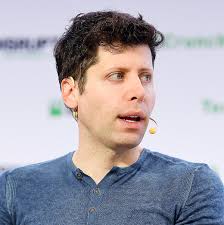OpenAI CEO Sam Altman has predicted that AI systems will begin producing “novel insights” as soon as next year.
In a new essay titled The Gentle Singularity, published Tuesday, Altman outlined his latest thoughts on how artificial intelligence will reshape the human experience.
The essay reflects Altman’s usual brand of futurism. He presents bold forecasts about AGI while tempering expectations around its immediate arrival.
Altman wrote that “next year, in 2026, the world will likely see the arrival of [AI] systems that can figure out novel insights.”
Though somewhat vague, the comment offers a clue to what OpenAI may prioritize in future AI model development.
The CEO has published several essays over the years sketching out how AGI might disrupt work, economics, and society.
His latest essay continues this tradition but contains new emphasis on AI’s potential to produce original, useful knowledge.
OpenAI executives have previously suggested the company is working on making AI systems more generative in reasoning and creativity.
Back in April, OpenAI launched its o3 and o4-mini models. President and co-founder Greg Brockman claimed they were the first to assist scientists in developing “new, helpful ideas.”
Altman’s new post suggests OpenAI is intensifying its pursuit of AI that can create meaningful and original insights about the world.
But OpenAI isn’t alone in chasing this vision. Its competitors have also accelerated their efforts in this space.
In May, Google published a research paper on AlphaEvolve. The AI agent reportedly generated original approaches to complex mathematical problems.
Another firm, FutureHouse, which is backed by former Google CEO Eric Schmidt, has claimed its AI made a genuine scientific discovery.
Also in May, Anthropic introduced a program to support researchers using AI for scientific inquiry.
These moves point to a growing trend: companies are aiming to make AI useful in core parts of the scientific process.
If successful, these tools could lead to breakthroughs across major industries. That includes pharmaceuticals, materials, and other science-based sectors.
The hope is that AI won’t just replicate human thinking but extend it—proposing theories and ideas that researchers might miss.
Automating parts of scientific discovery could reduce costs, speed up research, and unlock major economic opportunities.
Altman believes this capability is fast approaching. His essay offers a vision of the near future, where AI isn’t just intelligent—but also inventive.

